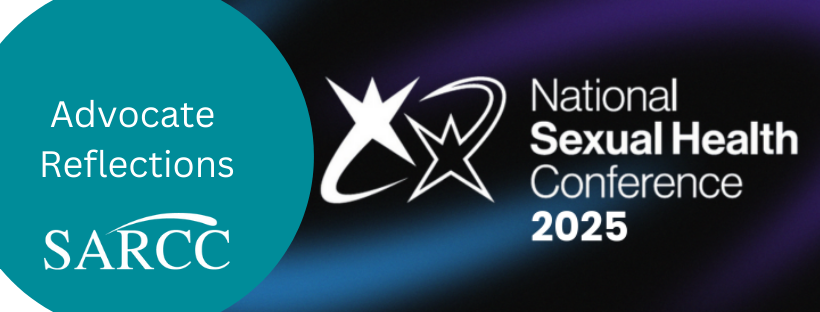This is Julia, your friendly neighborhood Prevention & Outreach Specialist! In December, I had the opportunity to attend the National Sex Education Conference. What does sexual violence prevention have to do with sex ed, you ask? Everything! When we remove shame and stigma from conversations about sex and sexuality, when we ‘get real’ about what our community (youth and adults) has learned about these topics, share our lived experiences, and provide thorough, compassionate, and accurate information, we’re all safer. And yet, we know that for many of us, community members and professionals alike, conversations around sexuality (an umbrella term that includes sexual health and reproduction, intimacy, sensuality, identity, and more!) can feel awkward, confusing, and vulnerable. For this reason, I was incredibly grateful to spend four days with leading educators in the field learning how to navigate these topics with grace, curiosity, and science!
Coming from the violence prevention world, my main focus was messaging around consent. To my surprise, I found myself realizing that many of the mainstream models for consent education accidentally leave folks out and create false binaries. For example, for much of my time in this work, I’ve used the framework of enthusiastic consent: Only “YES!!!!” means yes, everything else should be taken as a no. This framework can be beneficial in discouraging coercion and misconceptions such as “maybe=convince me”, but it also oversimplifies how desire works. What happens when a survivor is looking to re-engage with intimacy, feels safe and ready with a partner, but is still experiencing feelings of nervousness or trepidation? Should we say that any sexual activity they choose to engage in is non-consensual? What about folks who experience responsive desire (who don’t reach “YES!!!” mode without sufficient warming-up and/or initiation from a partner). What is their path to achieving ‘true’ consent? What about folks whose ‘maybe’ really means ‘maybe’? If our implication is “Decide now or it’s completely off the table”, do we leave room for curiosity, ongoing communication, and safe, healthy exploration?
As we poked more holes in the argument for enthusiasm as a requirement for consent, we shifted towards the idea of embodiment as a better framework. Embodiment refers to the process of developing bodily awareness and acting according to bodily feedback, aka: your body is the boss! In the context of sexual consent, this means taking a moment to check in with one’s body and ask “how does the idea of doing this make me feel? Where do those feelings live?”, and then respecting its answer. For people who need help figuring out their body’s “yes/no/maybe” cues, an exercise like this might be helpful: Imagine your favorite meal is being served in front of you. As you think of the smells, the sight of the plate, and envision that first, delicious bite—how do you feel? What sensations do you notice and where? Now, let’s swap out that lovely meal with a plate of moldy food. Same scenario, same questions. For some, adding routine “body check-ins” throughout the day can help develop a sense of embodiment. This framework also asks us to put more emphasis on internal reflection instead of an external answer. It allows “maybe” to mean “I need more time to figure it out” or “not right now, but later”, or “I don’t think I want this exactly, but I’d like something else” or whatever the subtext might be. Additionally, emphasizing continuously listening to and responding according to one’s body lends itself to the idea that consent is ongoing. It also allows us to bring pleasure into the consent conversation! We spend a lot of time talking about all of the things that can go wrong regarding sex, but often forget to emphasize the joy and empowerment that can accompany pleasurable, safe sex—especially for survivors. The shift from Enthusiasm to Embodiment was just one of many lessons learned at this year’s NSEC. Other awesome workshops included teaching consent for individuals who are non-verbal, incorporating grounding practices into sex for abuse survivors, using media to teach about healthy relationships, and more! For questions or more information about any of these topics, feel free to reach out to jwecker@sarccheals.org!



